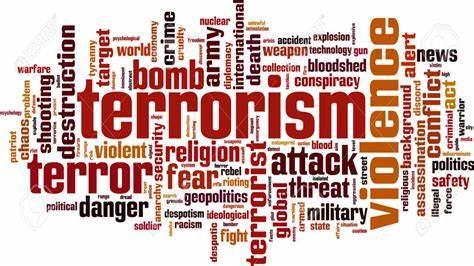From Doha to Deception the Growing Threat of FAK and ITOs

In the shadows of the Afghan mountains, a new monster has emerged—one that wears many faces, speaks in many tongues, and plots destruction with terrifying precision. The name is FAK, but its reach and threat have evolved far beyond a single group. Under the passive gaze—and at times, deliberate facilitation—of the Interim Afghan Government (IAG), FAK has transformed into an umbrella entity, offering protection, manpower, and infrastructure to some of the world’s most dangerous international terrorist organizations (ITOs). This is not a regional concern anymore; it is a global alarm bell ringing louder with each passing day.
Since the takeover of Kabul by the Taliban in 2021, Afghanistan has once again become a fertile ground for extremism. But this time, the threat is not fragmented. FAK is orchestrating a networked coalition of terror. It is now inextricably linked with entities like Al-Qaeda in the Indian Subcontinent (AQIS), the Islamic State Khorasan Province (ISKP), the Eastern Turkistan Islamic Movement (ETIM), and the Turkistan Islamic Party (TIP). These are not idle names—they are UN-designated terrorist groups, each with a violent history and a dangerous ambition. FAK does not just coexist with them. It empowers them, recruits for them, and shares tactics, weapons, and propaganda tools. It has become the glue binding together a loose federation of terrorists.
The threat is rapidly becoming systemic, and the complicity of the IAG cannot be denied. Under their watch, Afghanistan has become a sanctuary. FAK’s fighters are trained in camps built on Afghan soil. AQIS instructors provide military guidance and ideological indoctrination. The media wing of FAK is run with assistance from Al-Qaeda’s operational arms. Leftover U.S. military equipment—abandoned during the 2021 withdrawal—is now in the hands of these terrorists, giving them access to high-grade weapons once meant to stabilize the country. The betrayal is clear: while the world hoped for peace through the Doha Agreement, what has followed is its systematic violation. The promises made by the Taliban to not allow Afghan soil to be used for international terrorism have been not just broken, but mocked.
Evidence is abundant. Repeated eliminations of FAK commanders on Afghan soil demonstrate both their presence and the degree of freedom they enjoy. Pakistani intelligence has repeatedly shared evidence of cross-border infiltration. Afghan nationals have been apprehended or killed while carrying out acts of terrorism inside Pakistan, under FAK’s command. This is not a rogue group acting independently—it is a well-oiled machine operating with protection, training, and resources sanctioned by powerful elements within the IAG.
This evolving nexus is not only destabilizing Pakistan, which continues to bear the brunt of cross-border terrorism, but it is laying the groundwork for larger regional chaos. The Khawarij ideology being exported from Afghan soil is finding recruits far beyond the immediate borders. These groups are not just anti-Pakistan—they are anti-state, anti-stability, and anti-modernity. Their ambitions reach capitals far beyond South Asia.
The Doha Agreement, once seen as a pathway to peace, is now an empty document. The international community must stop pretending that the problem is contained. The harboring of FAK and its ITO allies by the IAG is not just a matter of bilateral tension between Pakistan and Afghanistan—it is a breach of global security consensus. The world stood witness as Afghanistan descended into lawlessness in the 1990s, eventually giving birth to 9/11. That history is threatening to repeat itself, only this time, the network is broader and more resilient.
The need for collaborative international action is urgent. It is time for global powers, regional neighbors, and international institutions to recognize that the safe havens in Afghanistan are incubators for the next wave of global terrorism. The UN has already designated these groups as threats to international peace—so why the delay in response? Diplomatic pressure, sanctions, and concrete counter-terrorism partnerships must now be forged not as a choice but as a necessity. Afghanistan’s future cannot be built on the graves of innocent civilians across its borders.
Pakistan, for its part, remains resolute. It has endured loss, sacrificed thousands of lives, and continued to fight this hybrid war with clarity and determination. But it should not be left to fight alone. The world must confront the uncomfortable truth that FAK, AQIS, ETIM, TIP, and others are no longer isolated threats. They are a unified menace operating from a state with a seat at international tables but no regard for international commitments.
The silence of the world today will be the regret of tomorrow. The time to act is now.











